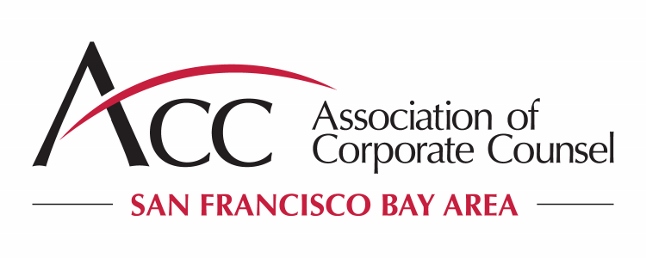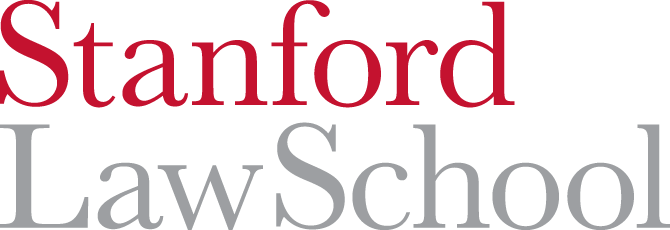SLS – SFBA ACC Internship Program
Stanford Law School and the San Francisco Bay Area Chapter of the Association of Corporate Counsel (ACC) are partnering together to offer a resume collection service as an efficient and easy way for SFBA ACC members to post legal internships and receive resumes from interested law students and recent graduates. The goal of this program is to provide a centralized place where law students can look for internships with SFBA ACC member companies in the Bay Area and where SFBA ACC attorneys can receive online applications for internship positions. Internships with in-house legal departments are a great way for students to get practical legal experience and work on interesting legal issues and are also a great way for in-house legal departments to recruit. We appreciate your interest in hiring law students and recent graduates for short term opportunities.


Dates & Deadlines
| 2016 Program Dates | |
|---|---|
| Friday, January 15 | Employer deadline to register and submit schedule request* |
| Monday, January 4 – Friday, January 22 | Students may begin applying for positions |
| Tuesday, January 26 | Resumes available to employers (notification sent via email) |
| Monday, February 1 – Monday, February 22 | Recommended time frame to interview students |
| Before Sunday, February 28 | Recommended time frame to make offers |
*If you are unable to meet the initial registration deadline, you may still post your opening and we will include it in our weekly email to students about new opportunities.
EMPLOYERS, PLEASE NOTE:
The initial timeframe for employers to register and post an opportunity is October 1 through January 15; however, the resume collection service will be open to in-house employers until April 2016.
Please keep in mind that most law students will apply, interview and secure their internships for the upcoming summer by the end of February since many legal employers (law firms, judges and government agencies) hire in the winter. Thus, for in-house legal departments to compete effectively with other legal employers, we encourage you to post your internship opportunities by January 15.
However, we also strongly recommend that employers post internship opportunities only when the employer is ready to actively engage in filling those positions. That is, please make sure you interview and communicate the outcome of your interviews with student applicants within thirty days after the posting is available to students. If an employer posts an opportunity before January 15 but waits months before scheduling interviews, the employer will find that many applicants will have moved on, assuming that the employer was not interested in their applications.
For those in-house employers that may not be prepared to conduct interviews and extend offers until after the end of February, you are still encouraged to make use of this platform at that time, as there may always be some number of students who, like you, are not able to commit themselves to summer employment until later in the spring.
Once a student has interviewed for a position, we encourage employers to communicate with the students about the employer’s time frame for making a decision. If an offer or rejection is not forthcoming within 2 weeks, you are encouraged to communicate with the students to keep them updated.
Learn More About Our Program
Eligibility
Eligible Schools
The pilot phase of the ACC Internship Program will be open only to Stanford Law School students, to allow us to more closely monitor the recruiting process for both employers and students and to make adjustments to the program. After the pilot phase, students from additional Bay Area law schools will be invited to participate in the program.
Eligible Students
This program will be made available to all first-year, second-year, and third year JD. students as well as LLM students.
- Note: Our LL.M. students are experienced attorneys from Europe, Latin America and Asia who are enrolled in a one year program in the Corporate Governance and Practice Program, the Law Science and Technology Program or the Environmental Law and Policy Program. They have experience with capital markets, corporate M&A, arbitration and antitrust, tech transactions, privacy and data protection, energy and land use.
Please note that any student (J.D. or LLM) who is not a U.S. Citizen or permanent U.S. resident may be eligible to work in the U.S for up to 12 months under his/her current student visa without any need for employer sponsorship. Students work with the University’s International office to process work authorization permits.
Eligible Employers
Employers who are SFBA AAC members may participate in our program.
Determining Internship Timing
Summer or Fall Internships?
Most students will be seeking summer positions; however, graduating students may be interested in internships that will begin after the July Bar Exam.
We suggest a minimum of 8 or 9 weeks, although there may be some students who will be able to work for longer periods of time.
Please note that Stanford Law School is on the quarter system, which means that spring quarter exams take place the first week in June and students are typically able to begin summer internships the second week in June.
Application Materials
Materials Available to Employers in Symplicity
- Resumes (mandatory)
It is mandatory for all students to submit their resumes to employers in Symplicity - Cover Letters (optional)
Cover letters are not required. Employers, however, may request that they be submitted with the students’ resumes. If you would like a cover letter, be sure to note this in the “Additional Request” section of your schedule request.
Students’ resumes and (optional) cover letters will be made available online beginning Tuesday, January 26. We will send out a notification e-mail to all participating employers letting them know that the applications are available.
Additional Materials
To receive materials in addition to a resume and cover letter (e.g. transcripts, writing samples, references, etc.), employers should contact the students directly after the initial review of his/her resume.
Scheduling Interviews and Extending Offers
First-year law students and LLMs typically begin their job search around the winter holidays, and most have finalized their summer plans by early March. As a result, we recommend that you review resumes and schedule interviews between February 1 – 22.
Scheduling Interviews
Employers will receive student resumes on Tuesday, January 26 and should contact candidates directly to coordinate interviews.
After the Interview
- Following Up
We have found that law students often measure a potential employer’s interest by the quality and timeliness of their follow-up. At the conclusion of each interview, we recommend that you inform the student of the approximate date to expect your response and of any subsequent steps to be taken by the selected students. - Timing of Offers
Per NALP Guidelines (NALP is an organization to which all law school career services belong), employers must leave their offers open for a minimum of two weeks. We, however, encourage our students to release offers and make decisions in a timely manner. We strongly feel that it greatly benefits both students and employers alike.
How To Register
Note: Do not use this form to submit High Risk Data.

Non-Discrimination Policy
The recruiting policies and guidelines of Stanford Law School have been developed to contribute to a positive and successful experience for students and recruiters. These guidelines are designed to support the academic mission of the School. Stanford Law School’s Policy on non-discrimination in employment has been in effect since 1985 and parallels the policy required of member schools by the Association of American Law Schools:
Stanford Law School makes its facilities and services open only to employers who do not discriminate on the basis of age, religion, disability, ethnic background, national origin, gender (including gender identity and expression), race, sexual orientation, veteran status, or any other characteristic protected by applicable law.
However, the School’s non-discrimination policy permits, and Stanford Law School encourages, lawful affirmative action in hiring women and the members of minority groups that are under-represented in the legal profession.
Tips on Conducting Successful interviews